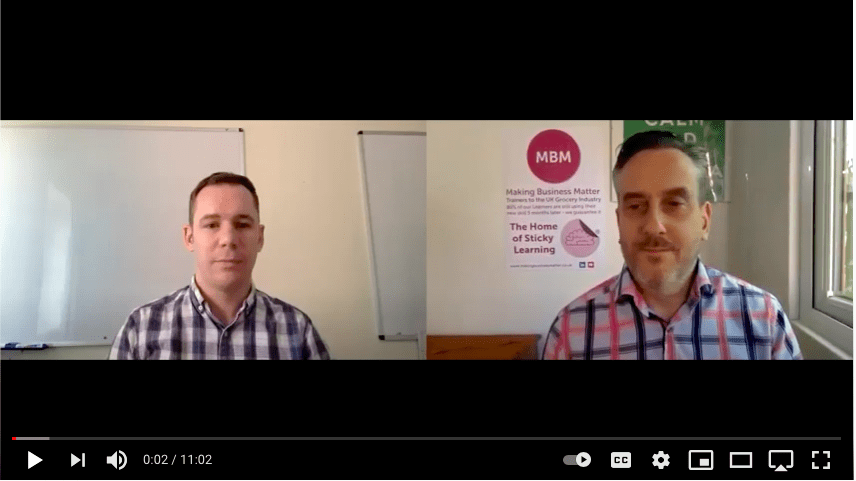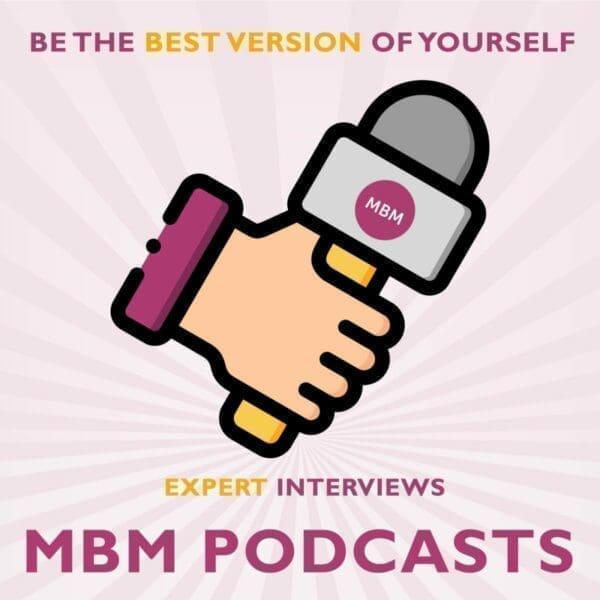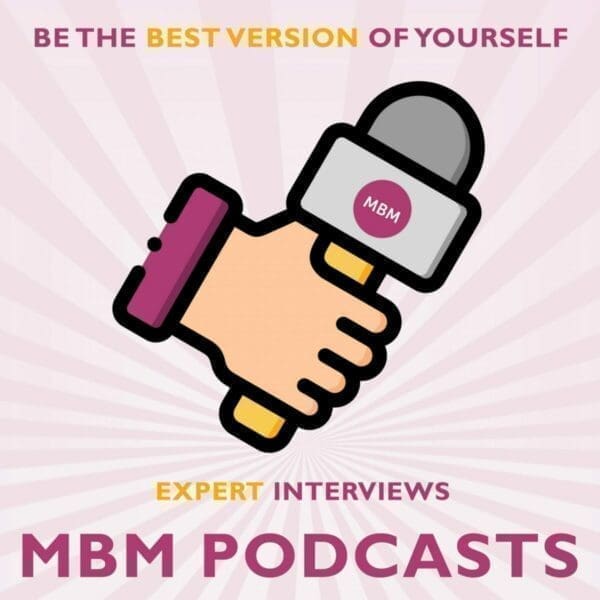Podcast: Play in new window | Download
Weekly Training Booster Ep#1: Improve Your Negotiation Skills
Join Andy Palmer and Darren A. Smith in the first episode of the Weekly Training Booster. This episode is about how to improve your negotiation skills with better preparation. Darren and Andy discuss using the squaredance, being more ambitious, and knowing that there are 8 methods of resolving conflict.
You Can Read the How to Improve Your Negotiation Skills Episode Transcript Below:
Andy Palmer:
All right. Good morning. Welcome to MBM’s Weekly Training Booster. Over the next few weeks, we are going to be covering a whole host of soft skills. Here at MBM, the home of Sticky Learning, we are looking to improve those soft skills that you’ve got, very practically and pragmatically in the workplace. I’m Andy from MBM. My colleague here is Darren, and today we are going to talk about how to improve your negotiation skills. So our Weekly Booster is how to improve your negotiation skills. Darren, let’s kick off. For you, what is negotiation skills?
Darren A. Smith:
Negotiation skills. Yeah, it’s a question we get asked a lot and we have over the last 20 years of training. Most people think that when they haggle, they’re negotiating. They’re not. They’re not. There are eight ways of resolving conflict. The one I’m going to talk about right now is haggling versus negotiation. So, you know when you go to a market, a foreign market, and you buy a pair of Roy-Bans. And Roy-Bans, you got them for €5 and they’re worth about €900; they’re not.
Haggling is you start here, I start here, we meet in the middle. That is not negotiating. That is one valid form of resolving a conflict, but haggling and negotiating are different. Negotiation is where we are discussing and we have more than one variable. So haggling is one variable, price, negotiation is one, two, three, four, five variables.
Andy Palmer:
Awesome. Brilliant. Great overview. You mentioned eight stages, eight stages to negotiations and how you can improve those negotiation skills. Can you give us a flavor for some of them?

Darren A. Smith:
Okay. There are eight methods of resolving a conflict. So we’ve got haggling, negotiation, surrender, where you just give in, normally with the kids, we’ve got problem solving, we’ve got unilateral action, and so on. So there are eight, but the one we’re really talking about today is negotiation. And we have to be careful when we think we’re “negotiating” … hate doing that … where it’s normally we’re either haggling or we’re problem solving. They’re both absolutely valid, but we’re not negotiating.
Negotiating has four stages to it. And those four stages, so we prepare, which most people don’t do. Then we go in and we ask a bunch of questions; we poke around. Then we propose, and then we count the winnings, right? So really four stages. And the one that most people miss is the prepare one.
Andy Palmer:
Cool. And if we were to kind of just talk about preparing for a moment, what one thing in your mind and the experience that you’ve got stands out to being the best way you can prepare for a negotiation?
Darren A. Smith:
Okay. So when most people prepare for a negotiation, they do one of two things. They either have a bit of a think about it and then they go into a negotiation, hit a brick wall, wonder how they got there. Or they do the dreaded PowerPoint. You open up PowerPoint, start typing away, and present. Actually, that’s not negotiation either. We created a Squaredance, a simple template, A4 template of how you can prepare for your negotiation with competence. So it’s a Squaredance, and we named it something rather apt, silly, so you can find it on the web. So if you just search Squaredance Negotiation, you get a free template, please use and abuse it as you wish.
Andy Palmer:
Good stuff. All right, so maybe we can include that template in the video and we’ll certainly put the link around somewhere towards the end. Absolutely take that template, figure out how you can improve your negotiation skills by using it, because it’s going to give you various ways of preparing for it powerfully, but allowing you to improve your confidence. And for me, and with any of the soft skills that we cover, ultimately what sits behind that is a person’s self-belief and their confidence in order for them to be able to go off and do that stuff. Template is going to be a good way to help boost that confidence. What other ways in your experience do you think people can boost their confidence when it comes to negotiation skills?
Darren A. Smith:
So this is where we get to the peripheral stuff that people will see as a bit pink and fluffy. I get it. We talk about soft skills and there’s no silver bullet. There’s nothing that’s absolutely hard that you can do, but there is something that you can do to prepare and improve your confidence. One of those is to watch Amy Cuddy’s video. Amy Cuddy is a researcher for Harvard, a professor at Harvard, and she come up with the cracking video about how your body language can change how you think. So I really, really recommend you watch that and it will help.
The second thing you can do is word on head, and we won’t have time to explain that now, but let’s say I came into this conference call with you now and I had a post-it note in my head, a metaphorical post-it note, and I had written on it “nervous”. You don’t see me doing a bit of this and I wasn’t really sure, but actually what I said to myself before I started this is “confident”. And my tone, my body language, my words changed to meet my post-it note. So we need to choose the word we’re going to have on our head before we go into negotiation. A lot of our clients have the word “buggered” and then they go in and they get [inaudible 00:05:07].
Andy Palmer:
That self-fulfilling prophecy just kicks in, and all of that stuff that goes behind it with the nervousness, that built up excitement, can just do them damage because ultimately they’re going to do whatever their brain tells them to do. I think for me, one of the most powerful techniques, and yet one of the most simplest ones, is to let us control our breathing because the risk is we go in, we’re a bit kind of pumped up, a bit excited, we’re breathing a little bit faster. Our body’s kind of saying, “Actually, I’m not sure I want to get here. I don’t want to be here. Get me out of here.” Fight or flight starts to kick in, our oxygen levels drop in our brains because they’re actually going out to our extremities to get us the heck out of there.
Actually, just sometimes slowing down, taking a few breaths in, holding it, letting our breaths come out, but actually controlling that in, hold, and out cycle. Doing that a few times can just allow us to come back to a much stronger position of control and a much stronger position of feeling in control, which is super powerful.
All right, good stuff. Let’s come back to how to improve negotiation skills. What’s the one thing that you’ve seen done really badly over the years? That kind of thing, that mistake that just seems to crop up time and time again?
Darren A. Smith:
In my experience, when I talk about open and closed questions as a trainer with a group of learners, everyone either nods violently or roll their eyes. They go, “Oh, I know this.” And that’s cool. We get open and closed questions. And when you explore it with them, go, “Yes, Darren, a closed question is yes or no.” Okay. So what’s an open question? And the really smart ones get to five bums on rugby posts with the why, the what, the how, blah, blah, blah. Cool.
In my experience, this many people actually do it. Zero. They get it. “Intellectually, Darren, I’ve got it.” Put them in practice, and all their questions are closed. “Is that the best deal you’ve got? Does it come with glue? Does it look like this?” And they get into closed questions and then they get stuck because they’re not extracting any information from their opponent, all they’re doing is confirming what they already knew. So closed questions, and it’s really hard. And even now I can almost hear the viewers going, “Yeah, we know this, Darren.” And my challenge to you, you don’t use open questions.
Andy Palmer:
All right. Good stuff. Love that. All right, so that’s one of the biggest pitfalls that you’ve seen that people fall into. In terms of the flip side of that coin, what stuff have you seen done really well? And I know we’ve talked about preparation and using our Squaredance to improve our negotiation skills, what stuff have you seen done really well that you think, “Do you know what, if everyone did that, that would just rock”?
Darren A. Smith:
Okay. Well, I’m going to sort of flip that coin in what I just said; it’s all about questions again. And the salespeople, the account managers out there are going to hate me. Over the last 20 years, if I was to put my money on whether I’d put an account manager into a negotiation or a marketeer, I’d put a marketeer every time. And the reason is the marketers are more curious, they’re more inquisitive. Your account manager’s going a bit like this. They’re ready for a fight. They know the buyers, they understand it. The marketeers less want a fight and more want to understand. And that’s why the marketeers, most of the time, win more deals than the account managers.
Andy Palmer:
Nice. I like that. That’s interesting. And I guess it’s those different styles that can be kind of accommodating, compromising, competing. There’s some others, I’m sure. It’s then the style and that kind of character that we choose to play and why I think we should always be ourselves. We can, in turn, dial certain things up and dial certain things down based on that situation and based on the audience that we’ve got. And it becomes for me an understanding of who they are, what their needs are, and then trying to kind of find a middle ground and an appropriate place to start that conversation and get that dialogue going.
Darren A. Smith:
Absolutely does. And you touched on there the Thomas Kilmann conflict styles and there are five of them and we naturally will gravitate to one or the other. And that’s cool. Just find out who we are and what [inaudible 00:09:15].
Andy Palmer:
Brilliant. Good stuff. Okay, so thinking one killer takeaway that our audience can self-seed, go away and do a practical tip. Beyond the Squaredance template for preparation, that’s awesome, what else do you think would really resonate with our viewers and our listeners today?
Darren A. Smith:
Well, I’m going to give them one challenge and that is be ambitious. Really easy to say, fairly hard to do. Most people aren’t ambitious enough in their negotiations. If you’re chasing a list in 50 stores, let’s call it 400. If you’re chasing £3 a case, what about chase £2 a case or the opposite? So most negotiators aren’t ambitious enough. They don’t think what’s possible and then try and touch the edges. So, that’s my challenge.
Andy Palmer:
Brilliant. I like that. I like it because it’s always that start with the end in mind, creating the mental first, then the physical, that will come. Stephen Covey’s 7 Habits stuff where let’s believe in the possible and then make sure it happens. And all the effort and all the resources and time we put into preparing, delivering, and ensuring that negotiation was successful all works to achieving that end in mind. Excellent.
Darren A. Smith:
Yeah. And for me, this is how they can improve their negotiation skills. There’s a few tips in there that they can do right now, so best of luck.
Andy Palmer:
Good stuff. Okay, Darren, thank you. All right, so this was our Weekly Training Booster. Today was about how to improve your negotiation skills. Within the video and the links that’s going to support this, we’re going to add in the Squaredance template, we’re going to put the link to our Ultimate Guide to Negotiation Skills. And the same time, if you’ve got thoughts and questions about anything we’ve covered this week or anything we’re going to cover in future Weekly Training Booster sessions, please drop us a line.
Darren A. Smith:
Thank you. Take care. Bye. Thanks, Andy.
Take a look at the How to Improve Your Negotiation Skills video on our YouTube Channel. Also, check out our award-winning blog.




